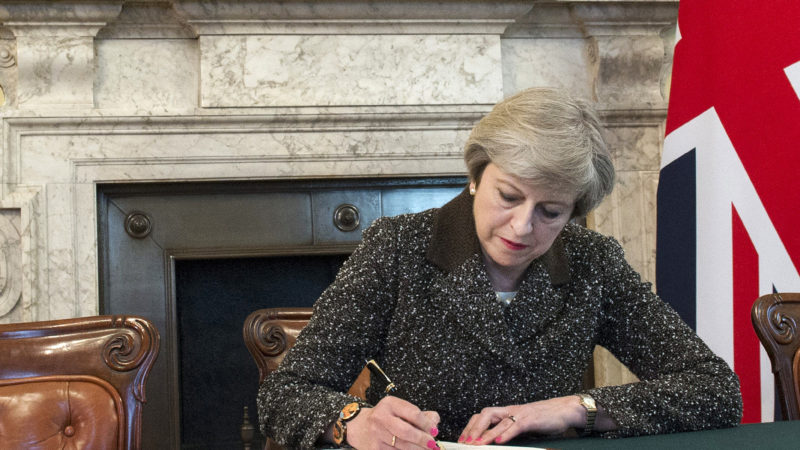EU chief Brexit negotiator Michel Barnier on Friday said the negotiators gave Britain a deadline of two weeks to come to an agreement over the outstanding issues on Brexit.
Barnier said the deadline was in order to be able to move on to talks on a future trade relationship in December.
Barnier, who spoke after the sixth round of Brexit talks, said that “some progress” had been made on three key issues, citizens’ rights, a financial settlement and the Irish border, however, the round did not result in any major breakthroughs.
“You should not expect from us at this stage where we are today any announcements or decisions,’’ Barnier said.
He confirmed that EU negotiators had given two weeks to Britain to make “sufficient progress” on the three sticking points, which is a key demand of the EU, in order for remaining member states to approve opening trade talks at a summit in December.
“The deadline was necessary for the EU side to make sure that the 27 countries have enough time to agree on the text of the decision.
“So that it can be adopted by EU leaders during a summit scheduled for December 14-15,’’ an EU diplomat told newsmen.
Barnier noted that the EU would not make concessions.
“We are not asking the UK for concessions, nor are we planning to make any concessions ourselves,’’ Barnier said.
At the same time, Britain’s chief negotiator David Davis ruled out “creating a new border inside the UK” in order to grant a special status for Northern Ireland after Brexit.
His comment came in response to media reports that the EU had raised with Britain the possibility of Northern Ireland remaining in the customs union and single market after Brexit.
Davis said that while Britain recognised “the need for specific solutions,” he added that could not “come at the cost of the constitutional and economic integrity” of his country.
EU diplomats said that a special status for Northern Ireland would be in line with the Irish government’s position as well as a resolution by the European Parliament, which needs to approve any final agreement between the EU and Britain.
However, it is politically contentious in Britain, where Prime Minister Theresa May has ruled out remaining in the customs union and the single market.
On the issue of citizens’ rights, Barnier said that Britain’s explanation of the process for EU citizens to apply for settled status were “useful clarifications that are good basis for further work.”
However, questions over family reunification, social benefits and the role of the European Court of Justice still remained.
Further work on a financial settlement was also “absolutely vital” for the two sides to achieve sufficient progress by next month.
“It’s just a matter of settling accounts, as in any separation,’’ Barnier said.
The sides held the sixth round of talks over the terms of Britain’s exit from the bloc on Thursday and Friday, while no further rounds have been announced so far.
Britain, a member of the EU since 1973, is the first country ever to begin procedures for leaving the bloc, after a referendum in 2016.

